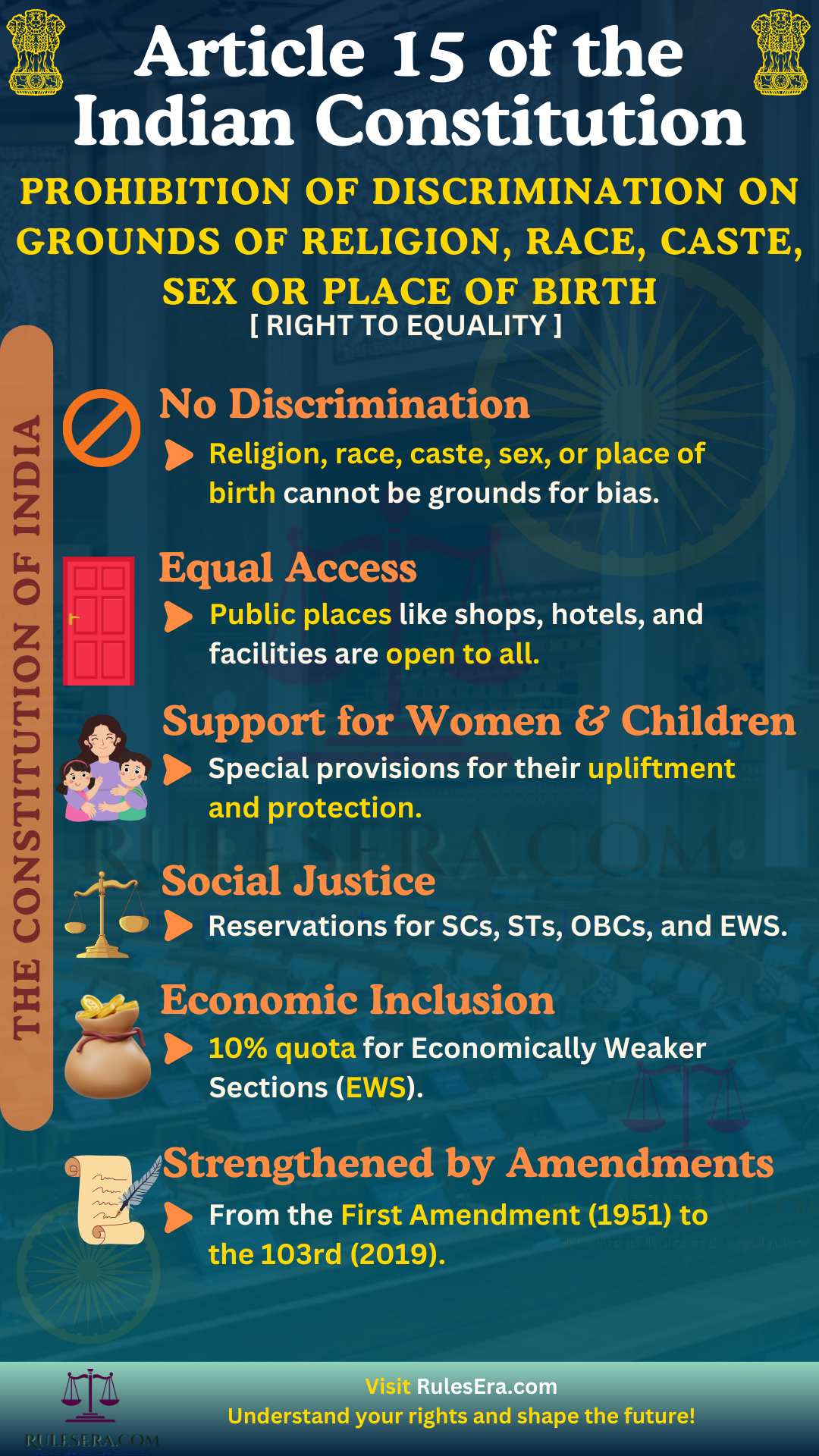Article 15: Prohibition of Discrimination on Grounds of Religion, Race, Caste, Sex, or Place of Birth

(1) The State shall not discriminate against any citizen on grounds only of religion, race, caste, sex, place of birth or any of them.
(2) No citizen shall, on grounds only of religion, race, caste, sex, place of birth or any of them, be subject to any disability, liability, restriction or condition with regard to—
- (a) access to shops, public restaurants, hotels, and places of public entertainment; or
- (b) the use of wells, tanks, bathing ghats, roads, and places of public resort maintained wholly or partly out of State funds or dedicated to the use of the general public.
Explanation
Article 15 ensures protection from discrimination based on religion, race, caste, sex, or place of birth. It upholds the right to equality, essential in a democratic society, and allows for affirmative action for disadvantaged groups to achieve substantive equality.
Key Clauses of Article 15
- Clause (1): Prohibits the State from discriminating against citizens based on religion, race, caste, sex, or place of birth.
- Clause (2): Ensures equal access to public spaces and facilities, including shops, restaurants, hotels, and public utilities.
- Clause (3): Allows special provisions for women and children, supporting affirmative action.
- Clause (4): Permits special provisions for socially and educationally backward classes and for SCs and STs, promoting their advancement.
- Clause (6): Allows for reservation for Economically Weaker Sections (EWS) in educational institutions.
Real-Life Applications
For instance, the 2019 amendment allows for a 10% EWS reservation in educational institutions. This provides greater access to economically disadvantaged sections, aligning with the goal of substantive equality.
Frequently Asked Questions (FAQs):
Article 15 prohibits the State from discriminating against any citizen on grounds only of religion, race, caste, sex, or place of birth, ensuring equal treatment under the law.
Clause (3) allows the State to make special provisions for women and children, enabling positive discrimination to address historical and social inequalities.
Through Clauses (4) and (6), Article 15 supports affirmative action by permitting special provisions for socially and educationally backward classes, SCs, STs, and EWS, promoting substantive equality.